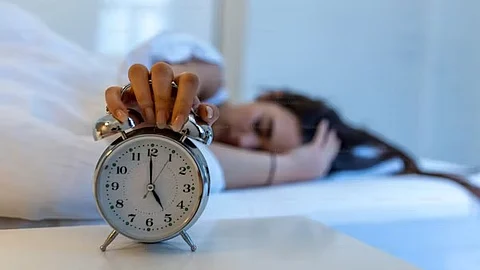Daytime Sleepiness Takes a Toll on Americans, Impacting Daily Life
“Recognizing the importance of sufficient, quality sleep is essential for overall health and well-being''
According to the survey, 47% of respondents report that sleepiness negatively impacts their productivity, making it challenging to stay focused and complete tasks efficiently. Additionally, 31% of people say that their quality of work suffers due to sleepiness, with men being 13% more likely than women to report a decline in work performance.
The impact of sleepiness extends beyond productivity, affecting mental health and personal relationships. Over one-third (38%) of Americans report that daytime sleepiness negatively impacts their mental health, and 24% of people say it impacts their relationships with friends and family.
Additionally, one-third (34%) of Americans say that daytime sleepiness negatively impacts their memory and mental recall, and 16% of respondents report that their reaction time while driving is negatively impacted as well.
"These statistics paint a clear picture of the widespread impact of daytime sleepiness," said Abreu. "It's crucial for individuals to recognize the importance of healthy sleep and seek help if they are struggling to sleep well on a regular basis."
To prevent daytime sleepiness, the AASM recommends that adults should sleep seven or more hours per night on a regular basis. The AASM also encourages healthy sleep habits, such as maintaining a consistent sleep schedule, creating a restful sleep environment, and addressing any underlying sleep disorders with the help of a health care professional, who may refer you to an AASM-accredited sleep center.
View 2024 AASM Sleep Prioritization Survey results in the AASM newsroom.
About the Survey
The American Academy of Sleep Medicine commissioned an online survey of 2,006 adults in the U.S. The overall margin of error fell within +/- 2 percentage points with a confidence interval of 95 percent. Fieldwork took place between May 16-24, 2024. Atomik Research is an independent market research agency.


